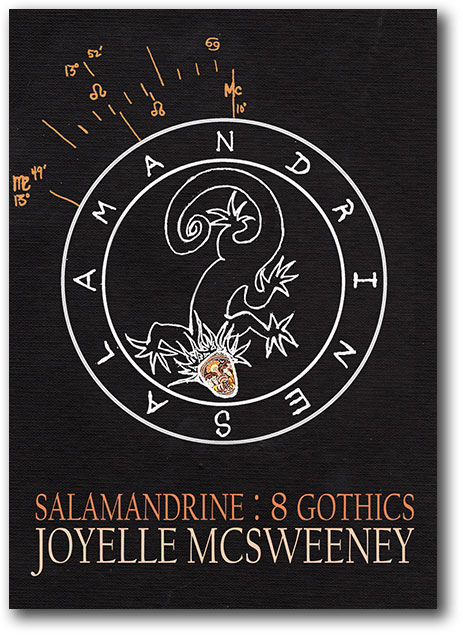
[Salamadrine] offers the reader strange and incongruous stories about becoming a mother. Biological, morbid, fanatic, surreal, McSweeney’s impulses are to go to the rhetoric of the maternity mythos by evoking the spooky, sinuous syntaxes of the gothic and the cleverly constructed political allegory. Salamandrine can be earnest and apocalyptic, playful and arch, but at its core is the proposition that writing the mother-body is a viscid cage match with language and politics in a declining age.
The maternal lens in many of the book’s fictions acts as a distortion, the hangover after a surge of oxytocin….
The book’s most common form is found in stories like “Salamandrine, My Kid,” stories that shift in and out of realism, space, and time. Sometimes the child is the mother’s echo and other times, the mother is chasing a lover in trains and abandoning the child’s thin body. “This is how the occupation has sharpened both myself and my daughter,” she writes in “Charisma.” “Sharpened our little claws.” … Populated by the popular culture of every Western culture of the last few centuries, these stories reveal the perverse arcana that lace this motherhood….
Because a mother sees the initiation of life, she also sees the initiation of death, the perpetual turning towards decay made all the more poignant by the cultural attribution of purity to the child. Salamandrine sometimes distantly reminds me of Paula Fox’s Desperate Characters, maybe because both books are political and satirical, yet embedded in some other form, Fox’s in a domestic realist novel, and McSweeney’s, a compendium that could be the love child of Poe, the film Revulsion, and the cant of a 16th-century criminal. Occasionally obscure, this collection is the sexy teleological apocrypha of motherhood literature, a siren song for those mothers “with no soul to photograph.”